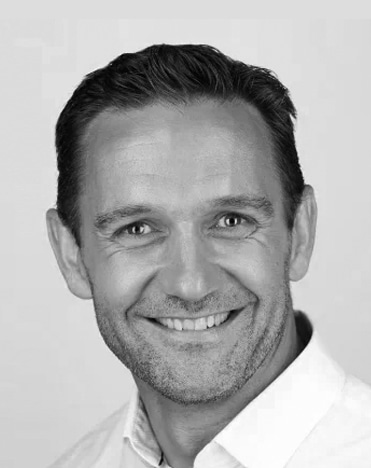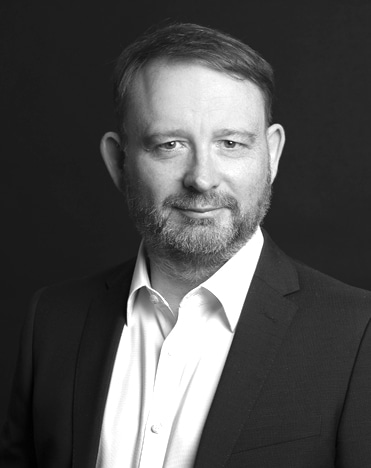Page Highlights
- Important introductory notes
- Financial processes and KPIs that helps shape finance team OKRs
- Finance OKR examples to inspire you
The finance team play an interesting and often key part in successful implementation and OKR cycle. Not only do Finance Leaders e.g. Chief Financial Officer participate in Company Strategy and OKR planning conversations, finance are also often the custodians of a companies most important metrics (KPIs) and as such are usually aware of the targets that have been set. You can make these KPIs visible and available in ZOKRI as KPIs or as they are sometimes referred to ‘health metrics’. An example of KPIs like this could be Pirate Metrics or Retention and Growth Rate.
Finance are also responsible for a number of key business processes like financial reporting, investor relations, audits, invoicing, collections, and payroll. Lots of these have their own KPIs. For example, processes under management by Finance include but are not limited to:
- Budgeting and financial analysis
- Invoicing and Crediting
- Expense management
- Compliance with regulatory commitments
- Taxation
- Accounts Payable / Receivable
- Financial statement preparation
- Inventory management
- Payroll
- Procurement
- Asset management
There are 4 types of OKR every employee should know. A process of in-team and cross-functional discussions about what your priorities for improvement should be, is typically how all OKRs are planned. For the CFO and colleagues in the team, their OKRs are often geared towards improving process KPIs that might be underperforming and the systems, processes, and jobs-to-be-done where the effort and reward makes sense. If it isn’t broken, it not always necessary to fix it.
Here you will find some examples of typical Finance OKR goals. Remember that OKRs were NOT created for ‘Business As Usual’ Goals, projects you are going to undertake, or really long-term goals.
Most OKRs fail not because they’re too ambitious—but because they start too fast. Without psychological safety, outcome-focused goals rarely stick. Our approach helps teams build trust, shift mindsets, and unlock 3.5x better results by doing OKRs the right way, in the right order.
Easy To Understand Finance OKR Examples
Before you look at these Finance OKR examples – ask yourself if you’re a good fit for OKR and answer these questions.
- When you consider the systems, processes, jobs-to-be-done, and departmental KPIs – what are your top 3 Finance priorities right now?
- If you were then forced to prioritise them with the top of the list being the priorities that would have the most impact on the business right and / or your teams performance right now, what would the sequence look like?
- How would you then measure the success? The answers will help you create Key Results.
OKRs For Finance
OBJECTIVE – Make KPIs and metrics needed for OKR available so we measure what matters – Q1
KEY RESULT 1 – 100% of requests for KPI access and support are met
OBJECTIVE – More efficient board reporting – Q1
KEY RESULT 1 – Reduce the time it takes to create board reports from 2 days to 3 hrs
OBJECTIVE – To reduce financial reporting time dramatically using software – Q1
KEY RESULT 1 – Reduce the time to produce financial statements from weeks to 2 days
OBJECTIVE – On-time collections help preserve precious cash – Q1
KEY RESULT 1 – Reduce Accounts Receivable Days : Over 60 days to 20%
OBJECTIVE – Make Expense Management simple & painless for everyone – Q1
KEY RESULT 1 – Expenses are paid within 14 days of a claim
KEY RESULT 2 – It takes finance less that 5 minutes to process a claim
KEY RESULT 3 – 100% of staff rate the ‘Expense Management Process’ as ‘Great’
OBJECTIVE – Payroll errors are a thing of the past – Q1
KEY RESULT 1 – Reduce Payroll errors to ZERO
KEY RESULT 2 – Everyone gets paid on-time
Initiative Planning Is Really Important Too Your OKR Success
The examples above use metrics to provide measurable outcomes to describe the desired future state after a quarter or a year.
The work you are going to do, your activities, projects. and tasks you will do to create the change you are looking for is where Initiatives come in.
Planning your Initiatives and moving them from Ideas to Active, Completed and Documented – where the success and learnings are captured can also be managed in the ZOKRI OKR platform.
The Initiatives you will do to achieve the outcomes might range from using existing accounting technology better, implementing a new expense management software solution, team education, better process design, and hiring.
OKR For Finance Conclusion
Finance teams have to blend many aspects of business. Helping shape OKR strategy, setting up the controls
that allow the business to track and react to change, we well as report, and of course the day-to-day operational aspects of finance like Payroll. Finance department OKRs could focus on all or part of these. It depends on there your priorities are.
Maintaining all of your KPIs in the form of OKRs is not ‘best practice’. You are not trying to run your finance operations through OKRs.
ZOKRI has worked alongside industry experts to create intuitive OKR software that provides Finance teams with the tools and features to make OKR embedding and adoption easy in your company.
With ZOKRI teams can measure, share and work on what matters, & improve performance quickly. A ZOKRI account ensures everyone knows and feels that they really matter.
See what best-in-class OKRs really look like. Download our comprehensive guide featuring a detailed OKR example that’s changing how organizations think about strategy execution.
"This isn't your typical OKR template - it's a masterclass in strategic thinking"
2024 Priorities & Plays
- Ensure you have a source of advantage, ideally a superpower.
- Get ahead of comp. and win the battle of customer value and experience.
- Ensure the people interacting with customers are part of your strategic discussions.
- Incorporating technological change - AI, Machine Learning, Automations. to compete on productivity, employee and customer experience.
- Develop and maintain a super healthy core business, this is the engine room of growth.
- Modernize approaches to strategy execution with better management systems.
- Lead on talent management, development, and hiring, and leverage employees uniquely human advantage in areas like creativity, empathy and relationship building.
The Good Strategy Test
- 2 - 4 mins
- Answer 7 questions and discover how good your strategic capability is, and where it might be improved.
Execution Capability Test
- 2 - 4 mins
- Answer 5 questions and discover how good your execution capability is, and where it might be improved.
Free Consultation
Meet Us
- Meet a few of the people you'd be working with.
- Ask questions.
- Share what you'd like to achieve.
- Find out how we'd approach the opportunity.
Who Will Be On The Call
- Latest Resources
- Events
- United Kingdom
Ashtead
KT21 1RZ
+44 20 7046 1328

- United States
New York
NY 10013
+1 646-718-4720
- ZOKRI helps leaders and teams achieve strategic goals using the OKR (Objectives & Key Results) framework. Our platform aligns strategy, goals, and people, fostering engagement and growth through comprehensive training and management systems.
© ZOKRI 2026 All rights reserved | Privacy Policy | Terms & Conditions | GDPR

